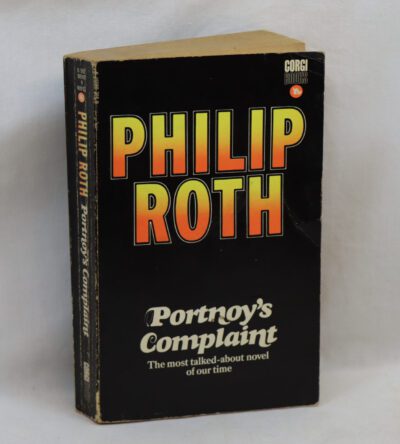Childhood, Youth and Exile.
By Alexander Herzen
ISBN: 9780810128477
Printed: 1983
Publisher: THe Folio Society. London
| Dimensions | 17 × 25 × 3 cm |
|---|---|
| Language |
Language: English
Size (cminches): 17 x 25 x 3
Condition: Fine (See explanation of ratings)
Item information
Description
In a fitted box. Orange cloth binding with gilt title. Gilt and green circles on the front board.
F.B.A. provides an in-depth photographic presentation of this item to stimulate your feeling and touch. More traditional book descriptions are immediately available.
Endorsed by F.B.A. – F.B.A. is endorsing a range of collectable lovingly used books
A lovely copy deserving of the best library
Alexander Ivanovich Herzen 1812 – 21 January 1870 was a Russian writer and thinker known as the “father of Russian socialism” and one of the main fathers of agrarian populism (being an ideological ancestor of the Narodniki, Socialist-Revolutionaries, Trudoviks and the agrarian American Populist Party). With his writings, many composed while exiled in London, he attempted to influence the situation in Russia, contributing to a political climate that led to the emancipation of the serfs in 1861. He published the important social novel Who is to Blame? (1845–46). His autobiography, My Past and Thoughts (written 1852–1870), is often considered one of the best examples of that genre in Russian literature.
Herzen (or Gertsen) was born out of wedlock to a rich Russian landowner, Ivan Yakovlev, and Henriette Wilhelmina Luisa Haag from Stuttgart. Yakovlev supposedly gave his son the surname Herzen because he was a “child of his heart” (German Herz).
He was first cousin to Count Sergei Lvovich Levitsky, considered the patriarch of Russian photography and one of Europe’s most important early photographic pioneers, inventors, and innovators. In 1860, Levitsky would immortalize Herzen in a famous photograph.
Herzen was born in Moscow, shortly before Napoleon’s invasion of Russia and brief occupation of the city. His father, after a personal interview with Napoleon, was allowed to leave Moscow after agreeing to bear a letter from the French to the Russian emperor in St. Petersburg. His family accompanied him to the Russian lines.
A year later, the family returned to Moscow and stayed there till after Herzen had completed his studies at Moscow University. In 1834, Herzen and his lifelong friend Nikolay Ogarev were arrested and tried for attending a festival where verses by Sokolovsky, that were uncomplimentary to the tsar, were sung. He was found guilty, and in 1835 banished to Vyatka, now Kirov, in north-eastern European Russia. He remained there until 1837, when the tsar’s son, Grand Duke Alexander (who later became become tsar Alexander II), accompanied by the poet Zhukovsky, visited the city and intervened on his behalf. Herzen was allowed to leave Vyatka for Vladimir, where he was appointed editor of the city’s official gazette. In 1837, he eloped with his cousin Natalya Zakharina, secretly marrying her. In 1839 he was set free and returned to Moscow in 1840, where he met literary critic Vissarion Belinsky, who was strongly influenced by him. Upon arrival, he was appointed as secretary to Count Alexander Stroganov in the ministry of the interior at St Petersburg; but due to complaining about a death caused by a police officer, was sent to Novgorod where he was a state councillor until 1842. In 1846, his father died, leaving him a large inheritance.
In 1847, Herzen emigrated with his wife, mother, and children, to Italy never to return to Russia. From Italy, on hearing of the revolution of 1848, he hastened to Paris and then to Switzerland. He supported the revolutions of 1848, but was bitterly disillusioned with European socialist movements after their failure. Herzen gained his reputation as a political writer. His assets in Russia were frozen due to his emigration, but Baron Rothschild, with whom his family had a business relationship, negotiated the release of the assets, which were nominally transferred to Rothschild.
Herzen and his wife Natalia had four children together. His mother and one of his sons died in a shipwreck in 1851. His wife carried on an affair with the German poet Georg Herwegh and died from tuberculosis in 1852. That same year, Herzen left Geneva for London, where he settled for many years. He hired Malwida von Meysenbug to educate his daughters. With the publications of his Free Russian Press, which he founded in London in 1853, he tried to influence the situation in Russia and improve the situation of the Russian peasantry he idolized.
In 1856 he was joined in London by his old friend Nikolay Ogarev. They worked together on their Russian periodical Kolokol (“Bell“). Soon Herzen began an affair with Ogarev’s wife Natalia Tuchkova, daughter of the war hero general Tuchkov. Tuchkova bore Herzen three more children. Ogarev found a new wife and the friendship between Herzen and Ogarev survived.
Herzen spent time in London organising with the International Workingmen’s Association, becoming well acquainted with revolutionary circles including the likes of Bakunin and Marx. It was during his time in London that Herzen began to make a name for himself for “scandal-mongering” when he told Bakunin, freshly arrived after having escaped imprisonment in Siberia, that Marx had accused him of being a Russian agent; in reality, the two were on very good terms.
In 1864, Herzen returned to Geneva and, after some time, went to Paris where he died in 1870 of tuberculosis complications. Originally buried in Paris, his remains were taken to Nice a month later.
Herzen promoted the ideas of Westernizer Vissarion Belinsky after his death in 1848. He was influenced by Voltaire, Schiller, Saint-Simon, Proudhon, and especially Hegel and Feuerbach. Herzen started as a liberal but increasingly adopted socialism. He left Russia permanently in 1847, but his newsletter Kolokol published in London from 1857 to 1867, was widely read. Herzen combined key ideas of the French Revolution and German idealism. He disliked bourgeois or middle-class values, and sought authenticity among the peasantry. He fought for the emancipation of the Russian serfs, and after that took place in 1861, he escalated his demands regarding constitutional rights, common ownership of land, and government by the people.
Herzen was disillusioned with the Revolutions of 1848 but not disillusioned with revolutionary thought. He became critical of those 1848 revolutionaries who were “so revolted by the Reaction after 1848, so exasperated by everything European, that they hastened on to Kansas or California”. Herzen had always admired the French Revolution and broadly adopted its values. In his early writings, he viewed the French Revolution as the end of history, the final stage in social development of a society based on humanism and harmony. Throughout his early life, Herzen saw himself as a revolutionary radical called to fight the political oppression of Nicholas I of Russia. Essentially, Herzen fought against the ruling elites in Europe, against Christian hypocrisy and for individual freedom and self-expression.
He promoted both socialism and individualism and argued that the full flowering of the individual could best be realized in a socialist order. However, he would always reject grand narratives such as a predestined position for a society to arrive at and his writings in exile promoted small-scale communal living with the protection of individual liberty by a non-interventionist government.
His literary career began in 1842 with the publication of an essay, in Russian, on Dilettantism in Science, under the pseudonym of Iskander, the Turkish form of his Christian name. His second work, also in Russian, was his Letters on the Study of Nature (1845–46). In 1847 appeared his novel Who is to Blame? This is a story about how the domestic happiness of a young tutor, who marries the unacknowledged daughter of a Russian sensualist of the old type, dull, ignorant and genial, is troubled by a Russian sensualist of the new school, intelligent, accomplished, and callous, with there being no possibility of saying who is most to blame for the tragic ending.
Also, in 1847 were published in Russian periodicals the stories which were afterwards collected and printed in London in 1854, under the title of Prervannye Razskazy (Interrupted Tales). In 1850 two works appeared, translated from the Russian manuscripts, From Another Shore and Lettres de France et d’Italie. In French also appeared his essay Du Developpement des idées revolutionnaires en Russie, and his Memoirs, which, after being printed in Russian, were translated under the title of Le Monde russe et la Révolution (3 vols., 1860–1862), and were in part translated into English as My Exile to Siberia (2 vols., 1855).
Want to know more about this item?

Share this Page with a friend











